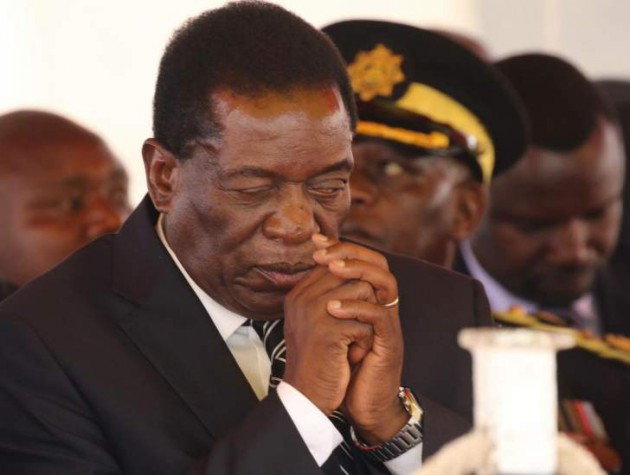
Recently it was reported in local newspapers that the government plans to build a new capital city in Mt Hampden. Sunday Opinion
The newspapers quoted senior government officials such as Minister of Local Government, Public Works and Urban Developent Ignatius Chombo, who confirmed that the capital would indeed be moved to Mt Hampden because Harare has become too congested.
The new site in Mt Hampden will reportedly have a Parliament, a Presidential palace, the Supreme and High Courts, the Reserve Bank, posh suburbs, hotels and modern shopping malls.
Presuming it’s true and having lived in Harare for the past few years, I have to say on this I agree with the politicians — at least in principle — Harare is congested and moving the capital to another location is, in my opinion, a welcome development.
But I disagree on the timing of such an ambitious project, the location and whether a new city is necessary. More importantly, this latest government project attempts to divert a problem and offer temporary solutions without addressing the causes.
Most Zimbabweans will agree that now is not the time to be building new cities considering that our economy is fragile and there is not enough money to efficiently run the country.
We lack good health facilities, food, shelter and our industries desperately need every cent we have.
Education is underfunded, some tertiary institutions such as Nust remain unfinished decades after construction began and our roads are in a terrible condition; the government says it cannot hold elections because it is broke, unemployment is high and civil servants are not earning decent salaries.
- Chamisa under fire over US$120K donation
- Mavhunga puts DeMbare into Chibuku quarterfinals
- Pension funds bet on Cabora Bassa oilfields
- Councils defy govt fire tender directive
Keep Reading
Against this backdrop, is it prudent to start building a new city? Where will the funding for the new city come from?
Perhaps the politicians will provide the money themselves — by all accounts they are as rich as Croesus.
Assuming that we have the money, should we not use it in other sectors where it is more urgently needed such as education, our roads and providing adequate and clean water to the residents of, say, Bulawayo?
The capital could then be moved to another smaller city such as Mutare, Gweru, Bulawayo or Masvingo, thereby solving two problems at once: Firstly, Harare is decongested and, secondly, the other city also grows— something that has not been happening to any Zimbabwean city other than Harare.
However, the most important question that should be asked is why Harare is congested and why it is growing when other towns are not. Moving the capital city without addressing this problem will not change anything, whatever attracts people to Harare — or what makes people leave other places — will continue doing so and Harare’s congestion will only get worse.
The most obvious reason is the lack of government investment in other cities and provinces and the government’s obsession with having everything in Harare.
We could learn a few things from other countries such as South Africa, Germany, Italy and the United states. In those countries, cities like Munich, Chicago, New York, Johannesburg and Milan are not capital cities yet are as important as any other city in that country.
Huge companies have their headquarters in such cities, for example, BMW and Siemens are headquartered in Munich.
It is surprising then to see Mbada Diamonds [Private] Limited having their head office at New Office Park, Borrowdale in Harare instead of Mutare where the diamonds are mined. This is the sad case in many other businesses and government departments, especially government departments.
Because the government ignores Masvingo, for example, the people there migrate to Harare in search of better economic opportunities.
To permanently solve the congestion problem, people must find it worthwhile to live in other places and this can only be done by decentralising. This will also increase the efficiency in the issuing of critical documents like passports and driver’s licences which, in the case of driver’s licences, take more than two years to be processed.
More importantly, provincial leaders will be responsible for the developments in that particular province and will be answerable to the people. Because of the differences in culture, language, geography and stages of development, provincial leaderships can focus on the needs of that province without affecting the whole country.
This will increase development as revenue collected in a province will primarily benefit that province and the money raised from, for example a toll gate, will be used to develop and maintain that particular road.
This will in turn motivate businesspeople and the general populace to invest in their provinces and will lead to the growth of other towns, thus solving Harare’s congestion problem.










